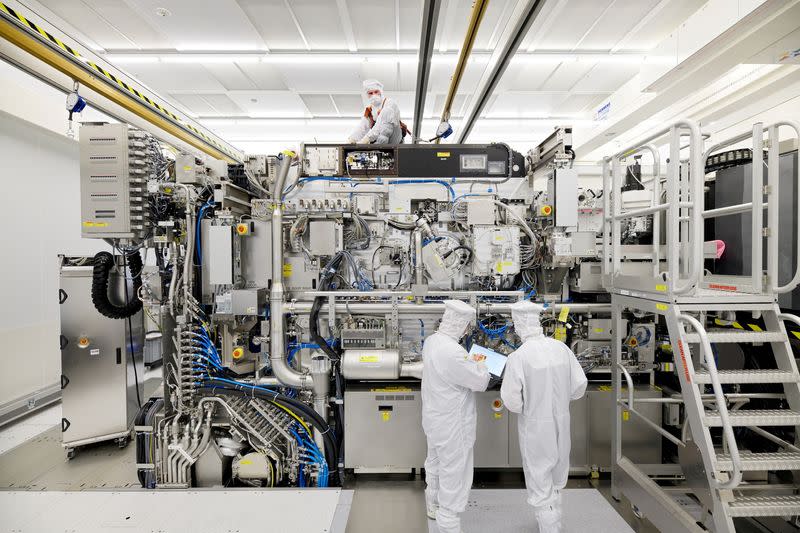Dutch chip firms are lining up new investments in Vietnam, as Western firms continue to reduce their reliance on China as a manufacturing hub.
Semiconductor companies and suppliers from the Netherlands made the revelation on Thursday, during a business mission to Hanoi led by outgoing Prime Minister Mark Rutte.
Initial known investments are not large but, nevertheless, signal a shift to reduce dependence on China as a hub for exports amid increasing trade tensions between Beijing and the West which have curbed the Netherlands’ sales of the most advanced chips to China.
Roughly a dozen of the nearly 30 businesses that accompanied Rutte were representatives of chips companies or suppliers of semiconductor firms, according to the delegation’s list.
Also on AF: US Lawmakers’ Curbs Call on China’s Open Source Chip Tech Use
During the visit BE Semiconductor Industries (Besi), a Dutch maker of chips equipment, announced it had received approval to make an initial investment of $5 million to rent a factory in the south of the country.
Besi’s investment is expected to grow significantly, with plans to build its own factory in Vietnam within the next four years, the company’s vice president for global operations, Henk Jan Poerink, said.
Rutte said he was sure other Dutch chips companies and suppliers would follow, noting the size of the business delegation accompanying him. “It’s clearly evident,” he said after he met with Vietnam’s Prime Minister Pham Minh Chinh.
Poerink said Besi would be followed by other Dutch companies to create a semiconductor “ecosystem” in Vietnam, adding that at least two other firms in the delegation were planning to invest.
He declined to name them, but added that another one not participating in the mission, VDL Enabling Technologies Group, had also decided to invest in the country.
Vietnam’s Intel Fab
The main reason for investing in Vietnam was to get closer to Besi’s clients, Poerink said, declining to name them, but noting they were top electronics and semiconductors players.
Vietnam is home to Intel’s largest chip assembling factory and is also a major manufacturing hub for South Korea’s giants Samsung and LG.
Poerink said the company’s strategy entailed relying less on China, where it nevertheless continued to grow but only to serve the expanding Chinese market.
He said he planned to move some operations from China to Vietnam, in line with what Besi’s clients had done. “Anything that is not for China … I will move out,” he said, describing his clients’ approach.
Other officials mentioned similar reasons for Dutch companies’ interest in Vietnam, especially as trade restrictions increase and top firms, like chip equipment maker ASML, can no longer sell their most advanced machines to Beijing.
Some of the companies accompanying Rutte are ASML suppliers, but the company did not send a representative.
- Reuters with additional editing by Sean O’Meara
Read more:
ASML Employee Who Stole Chip Secrets ‘Went to Work at Huawei’
US Curbs Set Off Sales, Tech Boom for China Chip Equipment Firms
ASML to Ship Top Tech to China Even as Dutch Chip Ban Starts
US Expands Ban on Top AI Chips, Curbs to Hit Many Countries
Huawei’s Chip Breakthrough ‘May Spur Tougher US Tech Curbs’
























